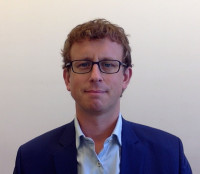Marine Biodiversity
Climate Change
Mangroves, Coral Reefs & Coastal Ecosystems
Sea-level Rise & Erosion
Ecosystem Services
Climate Adaptation & Resilience
Post-Doctoral Fellowships
Switzerland
Mangroves and Sea Level Rise: what future for highly stressed socioecological systems?
Besides supporting biodiversity, coastal mangrove forests provide countless critical ecological services, including carbon storage and coastline stabilization. Alarmingly, the combined pressures of sea-level rise and coastal development are rapidly eroding these coastal forests of shrubs and trees that grow in intertidal zones. The situation is particularly critical in regions where the development of intensive aquaculture has resulted in large-scale mangrove deforestation. Such is the case in many parts of Southeast Asia and beyond, where, in certain locations, groundwater extraction has caused the land to subside, thus making local rates of relative sea-level rise much faster than global average. The consequences have included rapid coastal erosion, loss of land, and increased exposure to extreme events; a preview of what climate change has in store for other such ecosystems globally. Indeed, as ETH Zurich researcher, Dr. Jamie McCaughey, points out, the accelerated sea-level rise of these regions not only calls for urgent action, it also “constitutes a valuable opportunity to gain insight into the future”. A postdoctoral researcher specialized in the societal impacts of natural hazards, McCaughey aims to investigate how these accelerated rates of local sea-level rise are impacting not only the ecosystem but the society that lives near and off it. More specifically, his project seeks to identify the factors that lead either to cooperation for adaptation or alternately to conflict, rapid resource degradation, and out-migration. The overall objective is to provide researchers and policy makers with empirical evidence on the capacity of coastal social-ecological systems to adapt to substantial seal-level rise, and eventually help identify effective intervention strategies for the future.
“Over the past century, global sea level has risen about 20 centimetres, according to the IPCC”, reports McCaughey. The IPCC projects that global sea level could rise an additional 52-98 centimetres by 2100 under the 'business-as-usual' emissions scenario. This means, we’ve only seen the tip of the iceberg. “In the coastal areas we are studying, the consequences of sea-level rise are more advanced than in most other coastal areas. And so are their adaptation efforts. People there have tried different adaptation strategies, and their feedback is valuable”. Thus, these regions constitute natural laboratories that provide much food for thought, and not just ecologically speaking. Indeed, the present project offers to study, not only the impact of sea-level rise on the natural landscape, but on the whole socio-ecological system. “We’re looking at what lies at the crossroads of ecosystem and society, the interactions between the services nature provides and the humans that benefit from them. There have been many studies on mangrove ecology, on community-level cooperation, on migration, and on hazard-related impacts, but there’s a dearth of information on the intersection between all of these research topics”. Investigating the consequences of real-life adaptation attempts offers the opportunity for such a comprehensive understanding.
Conflict or cooperation, out-migration, what strategies work and is there a tipping point?
Indeed, the major focus of the project is on the social dimensions of sea-level rise. It aims to uncover the patterns that influence adaptation success or failure in these socio-ecological contexts, taking into account not just large-scale trajectories but smaller-scale decisions, as well. To reveal these underlying levers of influence, three major research themes will be pursued. The first will examine conditions that favor community-level cooperation for adaptation, or alternatively, that lead to conflict and further degradation. The second will look at human migration, and particularly how sea-level rise and the loss of mangrove ecosystem services impacts lower-income households. Finally, the third will be concerned with the occurrence of the impacts, whether there’s likely to be a tipping point, or whether changes are likely to be incremental. To carry out these investigations, the research team will begin by engaging with national and local stakeholders, national-level agencies, and households to try and get a full picture of their experience: what’s been put into place, what they found effective or not, etc. Next, surveys will be conducted at the household-level, to understand the community’s side of the story: how people have been adapting, their level of well-being and involvement. Finally, all the collected information will be put together, combined with spatially explicit impact modelling of extreme events, to create an agent-based computer model to try and identify larger-scale adaptation trajectories that result from smaller-scale decisions and community contextual factors. “Imagine you have a fictional coastal community with hundreds of households each making their own decisions”, says McCaughey. “Once we design decision rules that are based on data we’ve collected in reality, we will be able to run the model many times, vary the circumstances, the level of sea-level rise, the degree of community involvement, the kinds of intervention policies, and assess the outcomes. It will not predict the future, but it will be prospective and help us understand the big patterns”.
Natural laboratories offer perhaps the most relevant investigative grounds for scientific understanding of the causative processes of natural hazards and for narrowing the uncertainty. Dr. Jamie McCaughey’s approach of focusing on coastal communities that are experiencing rapid land subsidence to gain insight on what to expect with projected levels of sea level rise is, in this sense, highly relevant. In addition, his choice to concentrate on developing countries addresses a pressing gap in previous research, which has mainly focused on developed countries despite their lesser exposure. The insights will be important not only for Southeast Asia, but also for coastal communities around the world.

Jamie
MCCAUGHEY
Institution
ETH Zürich
Institute for Atmospheric and Climate Science
Country
Switzerland
Nationality
American
Related articles
Climate Change
Finance, Investment & Risk Management
Societal Challenges
Climate Adaptation & Resilience
Insurance & Risk Management
Environmental Justice
Civil Society & Governance
AXA Project
Italy
AXA Research Lab on Climate Change, Risk and Justice
In response to three research questions: How can the private and financial sectors contribute to a just transition to a... Read more

Gianfranco
PELLEGRINO


